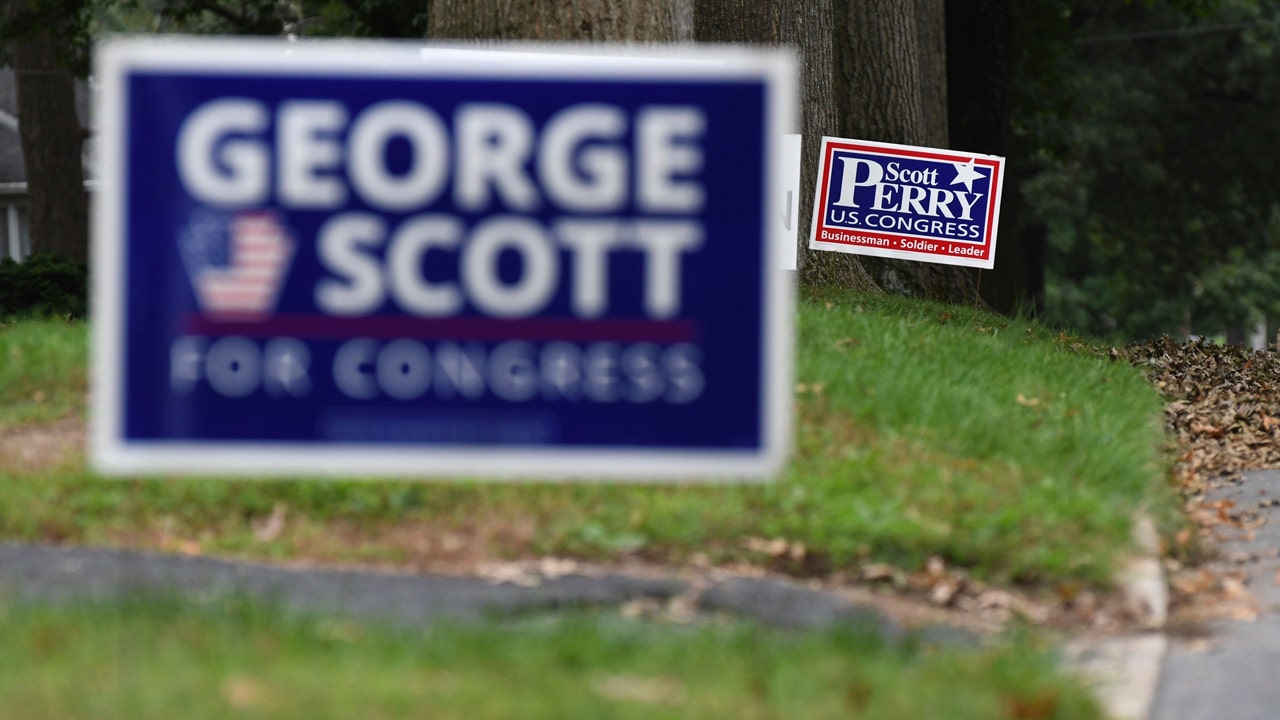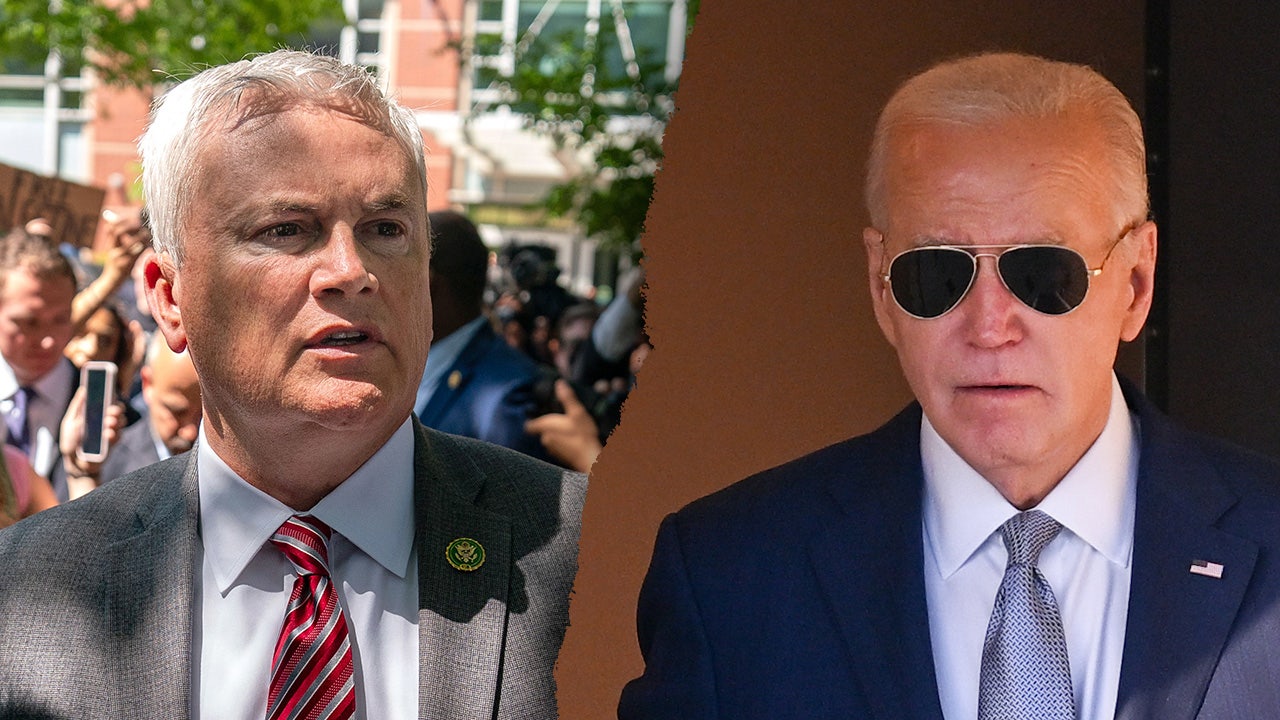Finance
Stock tips from TikTok? The platform brims with financial advice, good and bad

GOP debate: TikTok ban prompts tense interaction
Republican presidential candidates criticize the use of the popular social media app TikTok, both by Americans and each other.
One TikTok influencer adopted the guise of a 7-year-old in pigtails to demystify investment advice. Another appraised the field of S&P 500 investment funds in 56 seconds. A third presented the ultimate Chipotle hack: A sort of reverse-engineered burrito that costs four dollars.
TikTok has emerged as an unlikely mecca for personal finance advice, under the hashtag FinTok. Content creators with such handles as @YourRichBFF and @JohneFinance have collected millions of followers and tens of millions of views with quick, breathless videos that offer tips on everything from credit card rewards to haircut costs to cryptocurrency, often in less than a minute.
As with TikTok generally, FinTok trends young. Many content creators are in their 20s or early 30s. They market themselves not so much on academic credentials or professional training as on lived experience and relatability: A self-made millionaire at 30. A six-figure saver at 25.
In a September survey by WallStreetZen, three-quarters of Gen Z respondents said they learned about personal finance from social media, especially TikTok.
FinTok: Financial advice on TikTok ranges from benign to risky
Much FinTok content seems innocuous, even inspirational: Who couldn’t use some help in balancing their budget?
But some videos veer into potentially risky advice about investments, insurance, and taxes, topics that might better be left to the pros.
“It’s scary, because it’s so unregulated,” said Catherine Valega, a certified financial planner in Boston, Massachusetts. “And the people who post, you click through, and maybe they’ve paid off a student loan, but they have no credentials, in most cases.”
Where, then, to draw the line between good FinTok and bad?
Thousands of TikTok videos offer affirming, uplifting advice for young spenders and savers: How to write a monthly budget. How to start an emergency fund. Where to find high-yield savings. The fundaments of investing.
Checkbook math, as the subject was once known, eludes many young Americans. In a 2022 survey by the National Endowment for Financial Education, only 14% of adults said they had access to financial education in high school, and 15% in college. Most of us seem to pick it up at work, from a mentor, or on our own.
“I didn’t know what to do with my salary.”
Michela Allocca, 28, entered the workforce with a finance degree but no real sense of personal finance.
“I didn’t know what to do with my salary. I didn’t know I should be investing, beyond my 401(k) match,” she said. “There wasn’t any real, relatable resource for me to go to, so I didn’t know how to navigate all of these things.”
Allocca figured it out. She amassed $100,000 in savings by age 25, on a five-figure salary. Today, she posts on TikTok as @BreakYourBudget, engaging more than 800,000 followers with short videos about polishing a resume, handling workplace emotions, renting vs. buying, and opening a CD (but not the musical kind).
Like many successful FinTok creators, Allocca sells personal-finance templates, dashboards and courses. She has published a book, titled “Own Your Money.” She also earns income from branding deals, making videos that function both as advice and advertising, and that are labeled as such.
Her video on certificates of deposit references Ally Bank, a paid partner. A post on credit card rewards cites Credit Karma.
Allocca said she has learned to walk the line between offering benign financial tips and pedaling investment advice, which she views as the province of trained advisers.
“I generally ebb away from talking too much in-depth about investments,” she said. “I don’t know your life, so for me to say, you should go invest in this or that ETF, I can’t really do that in good conscience.”
FinTok influencers occupy a gray area between tips and advice
Allocca occupies a gray area in the universe of investment advice and financial planning. Certified financial planners have special training, much like accountants and lawyers.
By contrast, “a lot of social media experts have no more training or experience than you might, on a particular topic,” said Christine Kieffer, senior director of investor education at FINRA, the Financial Industry Regulatory Authority.
For many TikTok viewers, formal credentials don’t much matter. Successful influencers seem not to trade on pedigree, even when they have it.
One top host, Vivian Tu, is a University of Chicago graduate, former J.P. Morgan trader and Forbes 30 Under 30 honoree.
On TikTok, though, she is Vivian, Your Rich BFF, “Ex-Wall Streeter Helping YOU get Rich,” smiling in a photo as she fans a wad of cash.
Another FinTok influencer, Parii Bafna, offers only this modest claim: “I’m a real person.”
If young TikTok viewers don’t care about the bona fides of content creators, industry experts say, then they should at least consider the attendant risks in the content itself.
A 50-second video that encourages the viewer to take out a CD or open a high-yield savings account would seem to have little downside. A post that touts individual stocks, on the other hand, could bring either weal or woe.
“There’s this vagueness between financial coaching and financial advice,” said Kevin J. Brady, a certified financial planner in New York City. “Financial coaching, there’s no specific investment advice: Here’s how to budget. Here’s how to get your debt paid down.”
Brady said viewers should beware of a post that offers specific instructions on investments or taxes.
“I’m not saying that TikTok is automatically wrong, but be more cautious. That stuff is where you can really go wrong,” he said.
“Social media is public, but finances are personal.”
Financial planning is a dialogue between planner and client that yields advice tailored to the individual. TikTok, by comparison, is a mostly one-way street.
“Social media is public, but finances are personal,” Kieffer said. “So we really need to be thinking about whether what is right for someone else might be right for our own situation.”
TikTok has one undeniable advantage over the financial planning industry: It offers advice for free.
Yet, TikTok users do have other options.
More: Is your financial advisory company among the best? Help USA TODAY rank the top firms
What exactly does ‘rich’ mean?: Here’s what ‘wealthy’ means in 2023 America, in five numbers
The government offers a host of free resources for financial planning, including tools from the Consumer Financial Protection Bureau and the Financial Literacy and Education Commission.
Public libraries can be a trusted resource on consumer finance. And FINRA has a personal finance page.
“It’s okay for the internet and social media to be one source,” Kieffer said. “It just shouldn’t be your only source.”

Finance
BC finance minister will retire following provincial election in fall
Article content
British Columbia’s finance minister has announced she won’t be running again in the next provincial election after serving in the legislature for nearly two decades.
Katrine Conroy said it will be hard to leave the people she’s worked with over the years, but at 66, it’s time to step back to spend time with her family.
Article content
Conroy has held several portfolios under the New Democrat government and said it’s too hard to settle on a “greatest accomplishment,” but she’s especially proud of her work to waive post-secondary tuition fees for former youth in care.
Article content
She has also served as forests minister, and she thanked Premier David Eby and his predecessor, John Horgan, during the announcement on Friday, saying they “had the courage to appoint this rural woman to cabinet.”
Conroy was first elected in 2005 to represent West Kootenay-Boundary, then re-elected in 2009, 2013, 2017 and 2020.
She said one of her sons had reminded her that a Conroy had been on ballots in the region since 1986. That’s when her late husband Ed Conroy first ran as a school board trustee before he too served as an MLA between 1992 and 2001.
“That’s 38 years of our family supporting both of us in public service to our communities,” Conroy said at an announcement in Castlegar in the southern Interior, her voice faltering with emotion.
“I have been here as an elected official since (2005) and vicariously through my husband when he was an MLA for 10 years.”
In addition to finance, Conroy currently serves as minister responsible for the Columbia Basin Trust, Columbia Power Corporation and the Columbia River Treaty.
She said her work will continue until someone is elected to replace her.
Article content
While the NDP were in opposition before the 2017 election, Conroy was the critic for seniors and Interior economic development, among other roles.
Bookmark our website and support our journalism: Don’t miss the news you need to know — add VancouverSun.com and TheProvince.com to your bookmarks and sign up for our newsletters here.
You can also support our journalism by becoming a digital subscriber: For just $14 a month, you can get unlimited access to The Vancouver Sun, The Province, National Post and 13 other Canadian news sites. Support us by subscribing today: The Vancouver Sun | The Province.
Share this article in your social network
Finance
Negotiating Climate Finance: India’s Leadership Role in the Global South
Finance
Finance Deals of the Week: $215M Construction Loan in Long Island City

Lending continued at the start of May with a massive $215 million construction loan provided by Kennedy Wilson and Related Fund Management to Grubb Properties to build a new 26-story multifamily apartment complex in Long Island City. There also was a huge $141.5 million construction package sourced by Related Fund Management in tandem with Kennedy Wilson Capital and United Fire Insurance Company in Florida.
The lending heated up on the industrial side, as well, with Stephen Palmese’s Integritas Capital lending $53 million so an owner could refinance vacant industrial space in Brooklyn. Take a look below for all the week’s largest loans!
| Loan Amount | Lender | Borrower | Address | Property Type | Broker |
|---|---|---|---|---|---|
| $215 million | Kennedy Wilson and Related Fund Management | Grubb Properties | 25-01 Queens Plaza North; Queens | Multifamily | CBRE’s Elliott Voreis, Nate Sittema, Kristen Reilley and Owen Hall |
| $142 million | Related Fund Management, Kennedy Wilson Capital and United Fire Insurance Company | Related Group, Sydell Group, Tricap | 2700 NW Second Avenue; Miami | Condominium | N/A |
| $64 million | Lincoln Financial Group and PCCP | Bixby Land Company | 11145 and 11150 Inland Avenue; San Bernardino, Calif. | Industrial | N/A |
| $53 million | Integritas Capital | John Quadrozzi Jr. | 699 Columbia Street; Brooklyn | Industrial | N/A |
| $53 million | Bain Capital Real Estate and Oliver Street Capital | Barings | 140 Summit Street Peabody, Mass. | Industrial | Colliers’ John Broderick and Patrick Boyle |
Finance Deals of the Week reflect deals closed or announced from May 6 to May 10. Information on financings can be sent to editorial@commercialobserver.com.
-

 Politics1 week ago
Politics1 week agoThe White House has a new curator. Donna Hayashi Smith is the first Asian American to hold the post
-

 News1 week ago
News1 week agoPolice enter UCLA anti-war encampment; Arizona repeals Civil War-era abortion ban
-

 Politics1 week ago
Politics1 week agoAdams, NYPD cite 'global' effort to 'radicalize young people' after 300 arrested at Columbia, CUNY
-

 World1 week ago
World1 week agoTurkish police arrest hundreds at Istanbul May Day protests
-

 News1 week ago
News1 week agoVideo: Police Arrest Columbia Protesters Occupying Hamilton Hall
-
)
) Movie Reviews1 week ago
Movie Reviews1 week agoThe Idea of You Movie Review: Anne Hathaway’s honest performance makes the film stand out in a not so formulaic rom-com
-

 News1 week ago
News1 week agoSome Republicans expected to join Arizona Democrats to pass repeal of 1864 abortion ban
-

 Politics1 week ago
Politics1 week agoNewsom, state officials silent on anti-Israel protests at UCLA




















